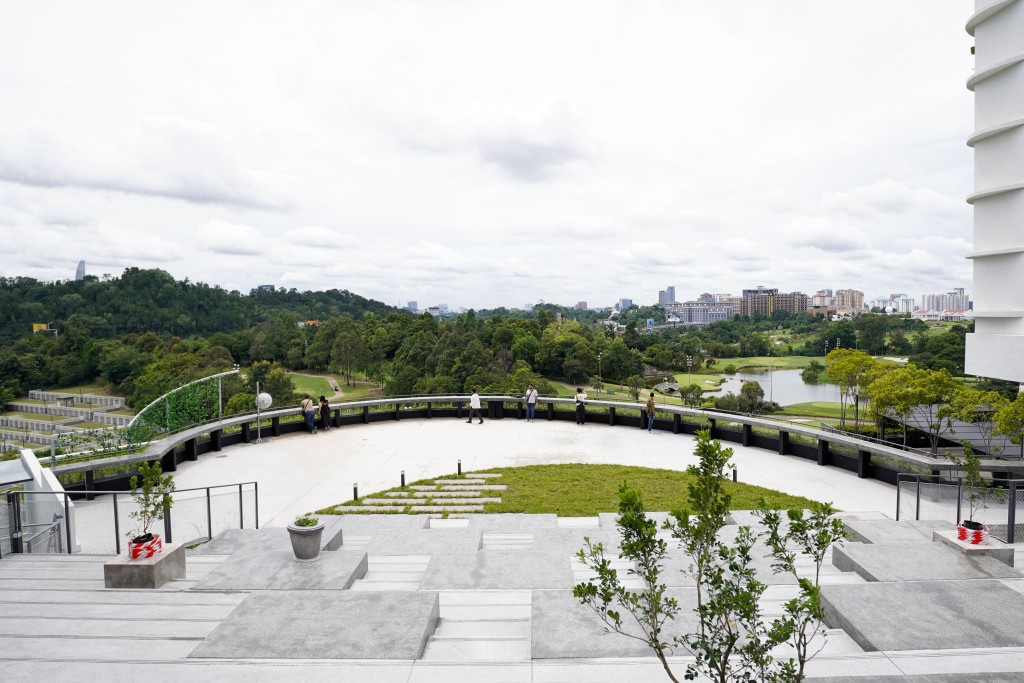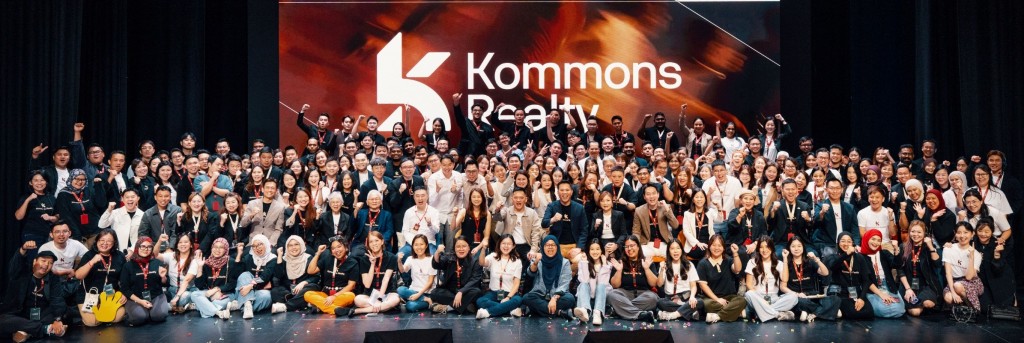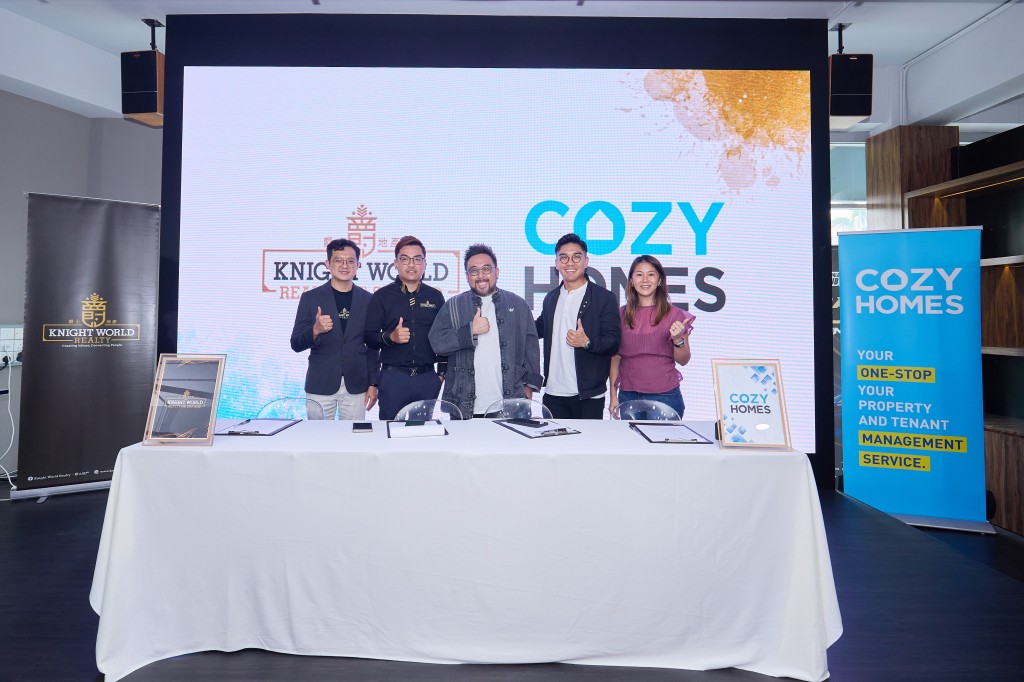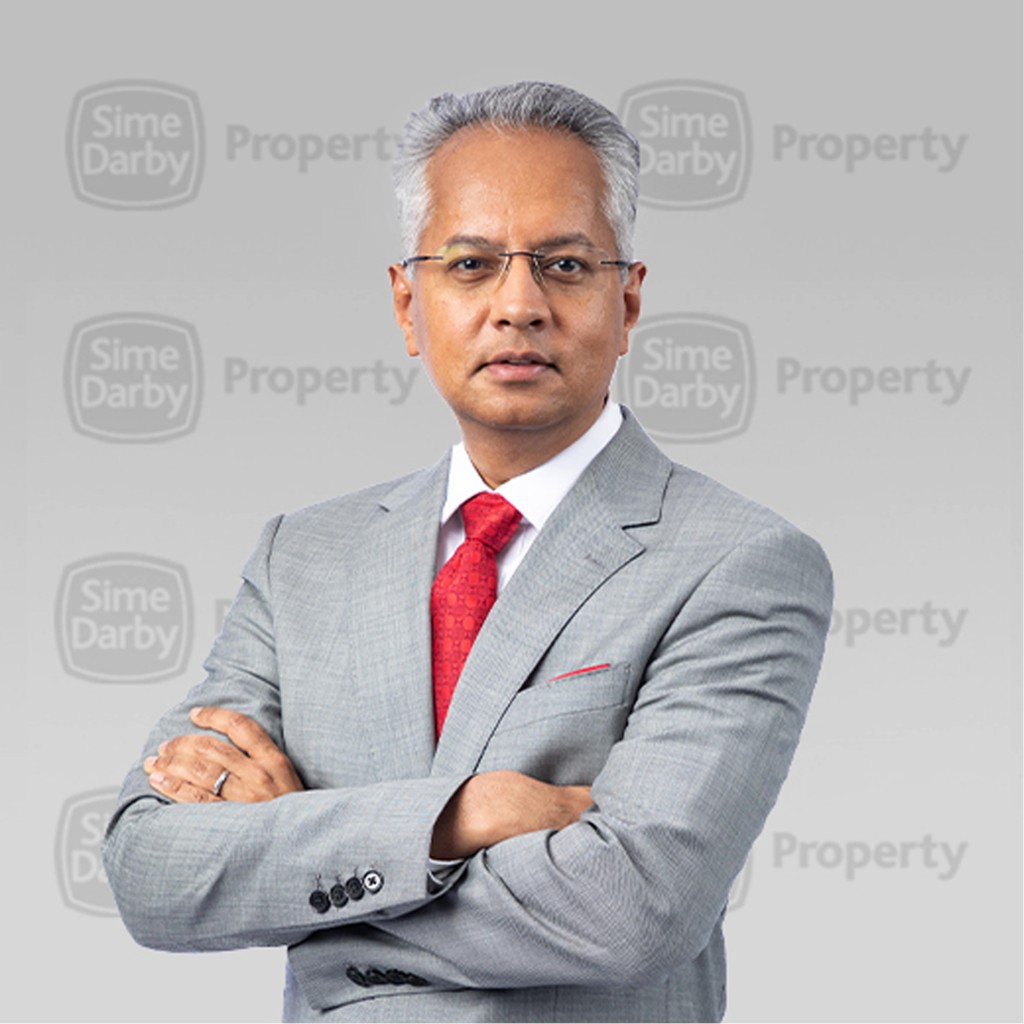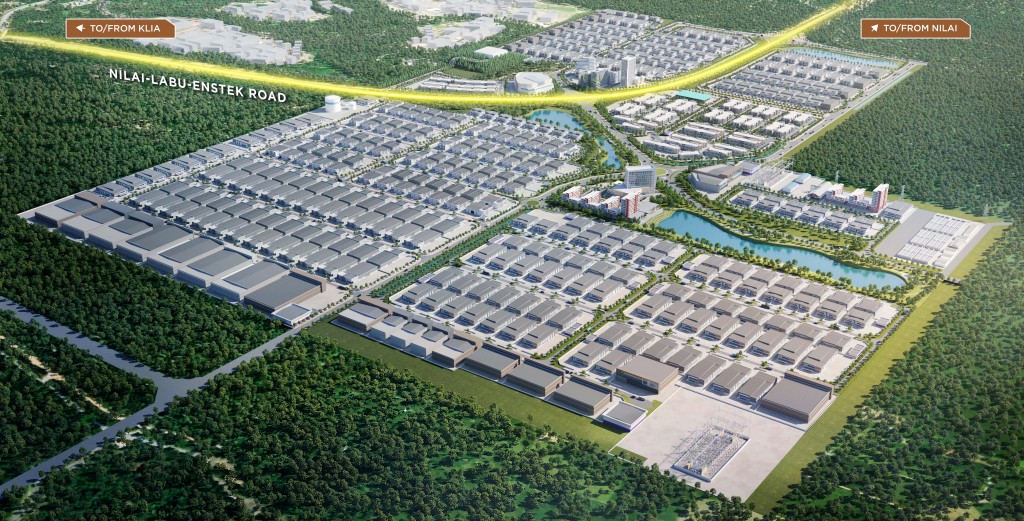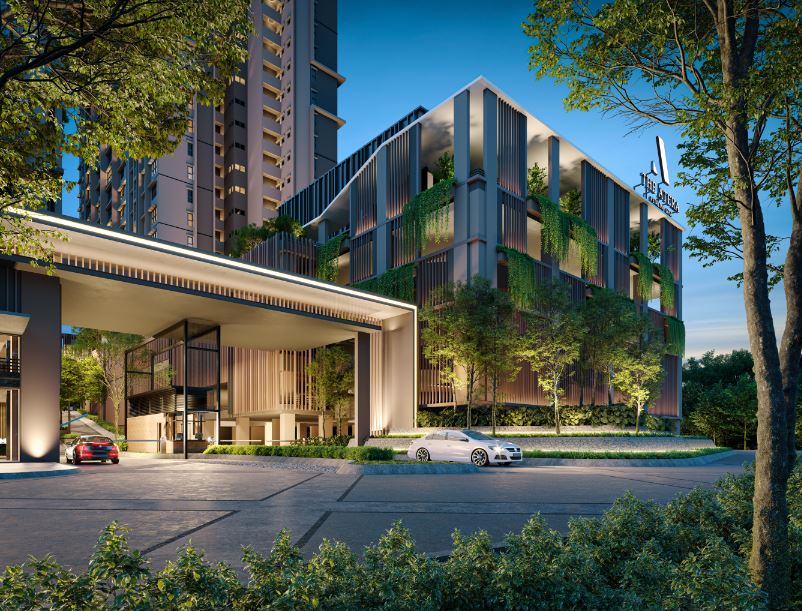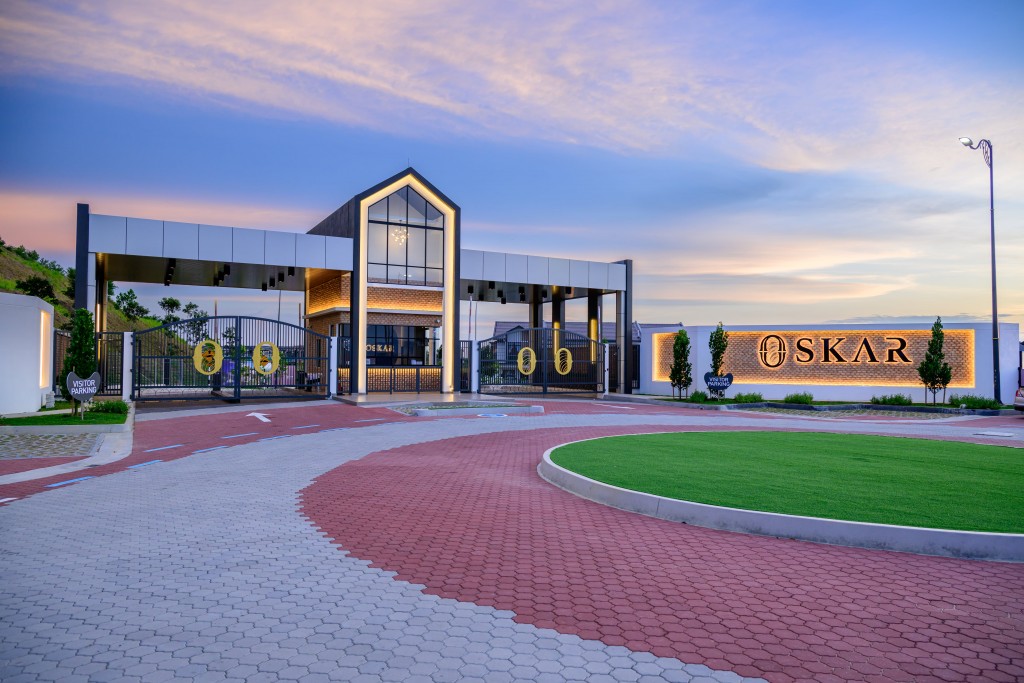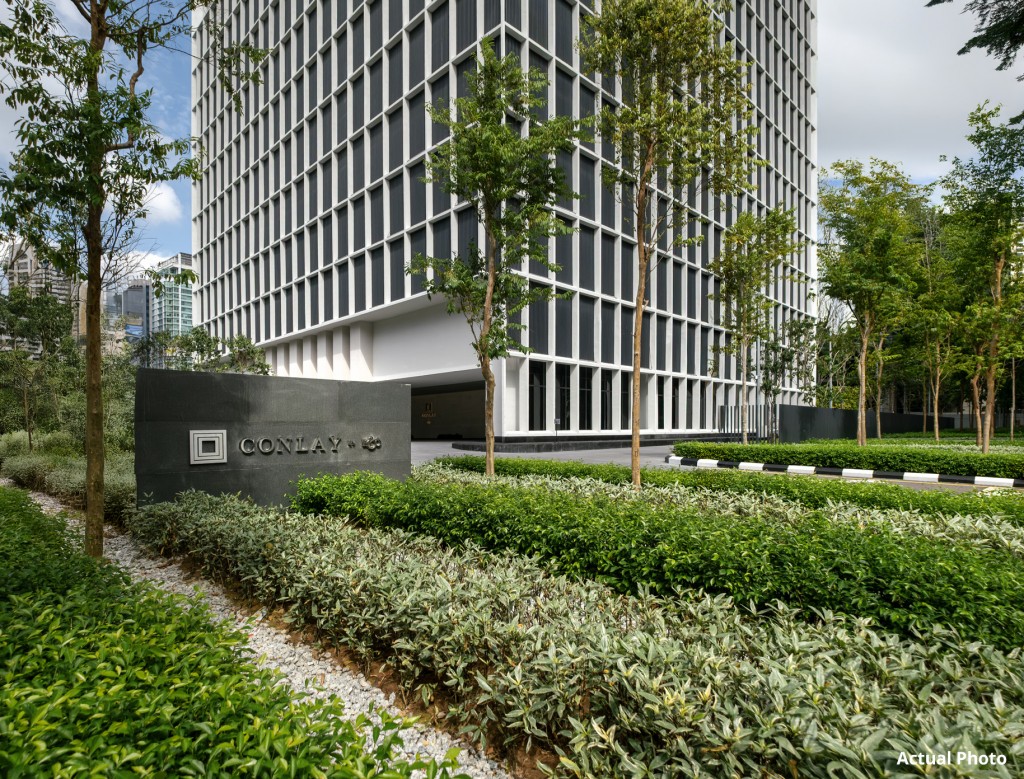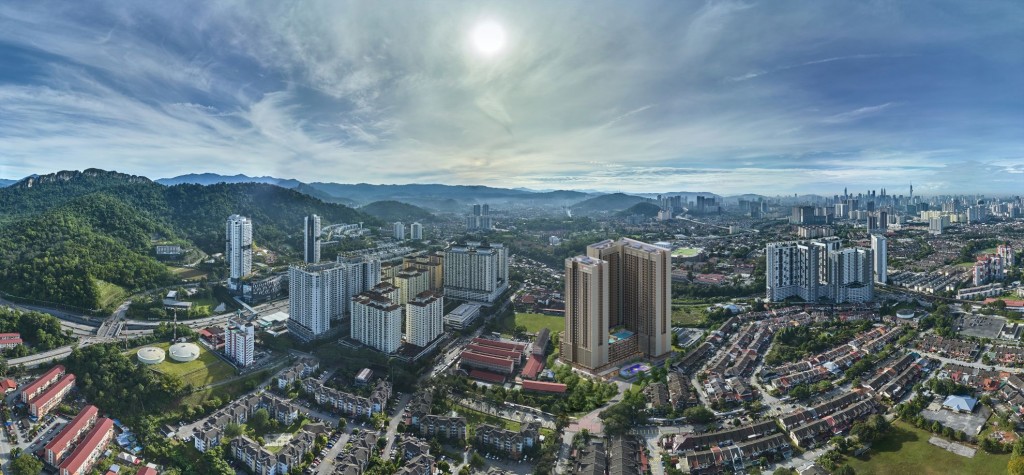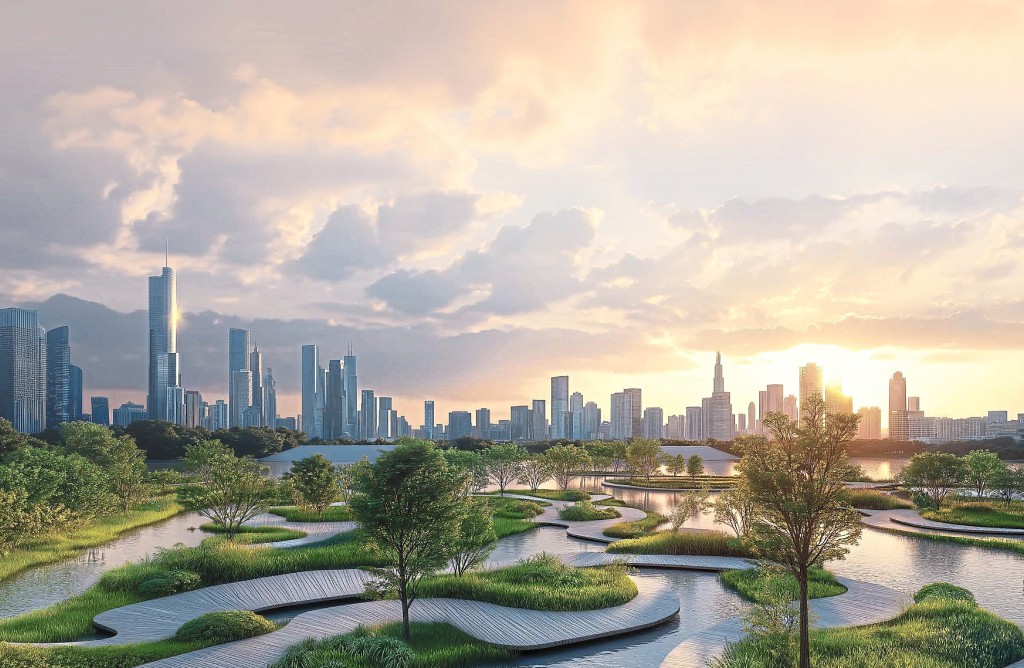 Urban Wellbeing, Housing and Local Government Minister Tan Sri Noh Omar speaks his mind about plans to help the urban poor, improve low-cost housing and tactics for the next general election.
Urban Wellbeing, Housing and Local Government Minister Tan Sri Noh Omar speaks his mind about plans to help the urban poor, improve low-cost housing and tactics for the next general election.
IT has only been a month since Prime Minister Datuk Seri Najib Tun Razak tabled the national Budget for 2017.
But Urban Wellbeing, Housing and Local Government Minister Tan Sri Noh Omar has already warmed up the ministry’s engine to run the policies announced.
One of them includes the Government’s plan to build 10,000 “transit homes” in urban areas to be rented out below market rate to youths with a permanent job for up to five years, in a bid ease their burden.
“We hope that after five years, these youths would have earned enough to buy a home of their own.
“We have started scouting for suitable government-owned land, including in Batu, Kuala Lumpur. We have kicked things off with plans for 4,000 units,” the 58-year-old says in an interview, adding that the ministry is also looking into plots in Malacca and Johor.
The ministry has also been given a RM300mil allocation under the 1Malaysia Maintenance Fund (TP1M) to repair facilities at flats and 113 People’s Housing Programme (PPR) initiatives in urban and suburban areas.
Noh, who is also Selangor Umno chief, says there are plans to introduce the access card system at lifts in PPR flats to improve security but it will be done in stages.
“PPR Lembah Subang 1 will be our pilot project. We will see if we can implement this nationwide stage by stage with the allocations we have,” he says.
However, Noh, who is Tanjong Karang MP, laments that the ministry does face some challenges when trying to carry out projects in Selangor as it is subject to approval from the Opposition-led state government.
“We have allocations to conduct projects in Selangor such as constructing town and community halls. But there are times we have been stopped by the local councils. We would have the necessary approvals at first, only to have the decision reversed later,” he claims.
On the political front, Noh, as Selangor Barisan Nasional chairman, says coalition members in the state have learnt that “nothing is impossible”, since they were defeated in the 2008 and 2013 general polls.
“We have to work hard. We have to convince the rakyat that Barisan is better than the Opposition-led government,” he says.
The following are excerpts from the interview:
Since your appointment as minister in June, what would you say are the successes achieved by the ministry so far?
The first would be on housing. The Prime Minister aims to provide one million affordable homes for the people. This task has been delegated among agencies such as 1Malaysia People’s Housing (PR1MA), Syarikat Perumahan Negara Bhd (SPNB) and others. These are all under different ministries.
The Urban Wellbeing, Housing and Local Government Ministry has been tasked to build houses for the poor, priced at below RM300,000 each. We have been given a quota of 60,789 units. As of September, we have achieved 83.5% or 50,789 units. So far, 19,301 units have been completed, 20,192 units are still under construction while another 11,296 units are still at the planning stage.
Under our purview, many PPR houses have also been built. As of this month, 80,252 PPR units have been built and 113 projects have been completed. However, some PPR units are vacant. There are about 11,000 vacant units. And why is this so? The problem lies in the applicants’ failure to meet all requirements. Some applicants qualify to buy PPR units as they fit the criteria of having a monthly household income of RM2,500 and below. But now, I have received approval from the Cabinet to increase this ceiling to RM3,000.
The average price of one unit is RM165,000 but we sell it at only RM35,000 to the people. Most of the low-income group do not have steady income. Some do not have bank accounts and thus, are unable to pay the deposit or get a bank loan.
When I looked into this issue, I found that most failed to get loans. So while the units have been built, there is no one living there. To solve this problem, we have the Rent To Own programme whereby applicants need not put down a deposit for the home but pay a monthly rental. After a certain period, the home will be theirs. Hopefully by this year, the problem of vacant homes will be solved.
What are the other challenges in coming up with affordable housing?
We have yet to reach our KPI. The remainder of affordable homes to be built by the ministry is 10,000 units or 16.5% of our quota. While we have approved many locations for such homes, they cannot take off. This is due to problems like converting agricultural land to residential land. The procedure for such changes also takes time. Sometimes, even when the status has been changed, the land is not under housing zones which is determined by local councils. So in the end, some projects which had been approved a year ago cannot take off. We have to appeal to the local councils.
What about addressing housing problems in urban areas?
There are many government projects in rural areas but we concentrate on towns and cities. Houses are expensive in urban areas. Currently, about 70% of Malaysians live in urban areas and this number is expected to increase. So I worry that in the long run, people will have housing problems because land will become more and more scarce.
The size of land will not increase but the population will. Hence, we are trying to implement the “transit home” programme announced by the Prime Minister. Such houses are not sold to the rakyat but are rented out for a maximum of five years. We started this initiative in Bukit Jalil and Jinjang and Kepong are next.
Such transit homes are like small apartments with one or two rooms. We hope that after five years, these youths would have earned enough to buy a home of their own. This is one of the measures to overcome housing problems in cities.
So far, how many transit homes have been planned?
The Prime Minister said the target was to come up with 10,000 units next year. We have kicked things off with 4,000 planned units.
Will this programme be extended nationwide?
We will start on government-owned land first. We are looking for land in places like Malacca and Johor. Aside from that, we are trying to develop pockets of land. Even 1.6ha is enough. We are searching for locations and trying to focus on urban areas and places with public transportation.
How would you describe the management of PPR projects in Selangor?
The Federal Government has done its part in building PPR homes and handed them over to the state government to manage. Take the PPR in Lembah Subang 1 as an example: we handed it over to the Selangor government but they have not been managing it well.
Many residents do not pay maintenance fees and when funds are low, the building cannot be managed properly. I have ordered the ministry to open up an office there.
As a precautionary measure, we have lodged a police report to prevent any untoward incidents. We hope the state government will cooperate with us. Because Lembah Subang 1 is one of the pioneer PPR projects, I want to transform it. I will bring in the Town and Country Planning and National Landscape departments to beautify and upgrade the project. To prevent vandalism, we want to install CCTV cameras there. Our deadline to take over the management is on Jan 1 next year. We also want to introduce the access card system. I have also ordered ministry officials and local residents to weed out illegal tenants and foreigners living there. They will also be offered to join the Rent To Own programme to reduce their financial burden.
Does the ministry plan to introduce the access card system in lifts to other PPR projects nationwide?
Lembah Subang 1 will be our pilot project. If vandalism and incidents of crime still persist, then we will find other ways to tackle the problems.
When will this move be extended to other PPR projects in the country?
There have been many requests from PPR projects. Insya Allah, we will see if we can implement this stage by stage with the allocation we have. It is our aim to improve the state of PPR projects and low-cost housing and we have received a big allocation to repair their facilities. This is reflective of the Prime Minister’s concern for the urban poor.
As the ministry entrusted to help this group, we will ensure they have comfortable living quarters and look into helping them economically by providing skills courses. We need to train youths to have skills that can be applied daily, like fixing pipes. We can also train them to be mechanics and barbers. They can also learn how to operate nurseries so that each block will have a nursery for residents with children. We want to transform all PPR projects – with Lembah Subang being the first – and help develop human capital among the residents. This will let them enjoy a better quality of life.
To improve on rubbish collection and management, will the ministry bring back previous concessionaires to manage waste?
Under Budget 2017, RM1.9bil has been allocated to pay concessionaires to handle waste management in the country. But there are some states which do not want any involvement in this, including Selangor.
Moving on to politics, what are your comments on the coming Umno annual general assembly? What will be the focus of the debate?
As Selangor Umno liaison chief, we have a committee to discuss what topics to raise. We will have our own spokesperson there.
Will the topics touch on any ex-Umno leaders?
We shall see when the time comes.
[slider id='81590' name='StarProperty' size='full']
What do you think of the Deputy Prime Minister’s suggestion to amend the Umno constitution to make way for an acting deputy president’s post?
I think it is a good suggestion. In law, nothing is permanent and rules can be changed to suit the time and situation. It is a good suggestion but I would like to add on to it. The Deputy Prime Minister made this suggestion not for his own interests but for the future. I would like to make a suggestion too but it is also for Umno’s benefit in the future.
I propose the constitution be amended so that all state liaison chiefs be automatically made supreme council members. By doing this, we can offer more chances to Umno members to be part of the supreme council.
This would mean they no longer have to compete with state Umno chiefs to secure one of the 25 elected positions in the council; this would give a bigger chance for state representatives to be part of the body. It can also prevent any conflict of interest should there be a few people from the same state vying for the post. I hope the party leadership will consider my suggestion.
As Selangor Barisan Nasional chairman, what preparations are being carried out to face the 14th general election?
Our principle is that nothing is impossible in politics. In Selangor, we learn from the past. In the 2004 general election, Barisan won big in Selangor – we swept 100% of the parliamentary seats. All 22 seats. For state seats, we won 54 out of the total 56. But within four years, in 2008, look what happened. From 22 seats, we only secured five parliamentary seats. For state seats, we won 20. We lost. So in politics, nothing is impossible and we have to work hard. We have to convince the rakyat that Barisan Nasional is better than the Opposition-led government.
There are state exco members currently who are from PAS. But how can this be when PAS has split from their peers who have now formed Pakatan Harapan? We should be reminded that when we lost power, our efforts to help the rakyat is now an uphill task even though we have the allocations because approvals are subject to the local councils. Some of our projects cannot be implemented because of the decisions of local councillors.
Lastly, what are your hopes for the ministry?
We need to act fast to solve problems plaguing the urban poor. Poverty is not something I just read about... I have experienced it personally. When I go down to the ground, I find that urban poverty is still prevalent and has to be reduced. To eradicate it completely may be impossible but we must do more to lower the rate of urban poverty.
Secondly, getting affordable housing is also a big problem, especially for youths. Room rentals are also more expensive.
Thirdly, I hope urban wellbeing can also be improved whereby Malaysians can enjoy a better quality of life in terms of housing, having a better and cleaner environment and being more economically stable. Besides that, I also hope to solve rubbish disposal problems which could cause health problems.



